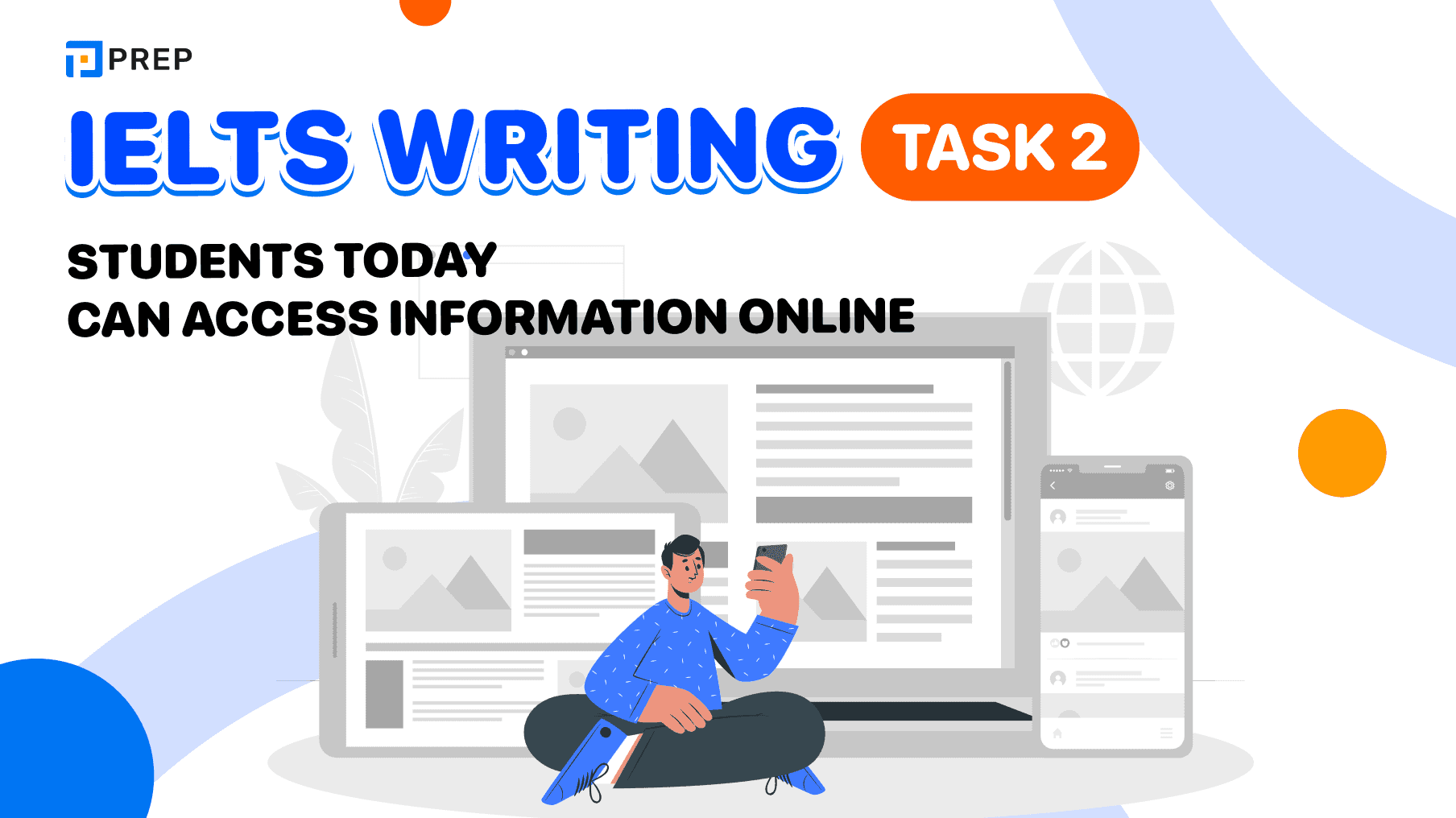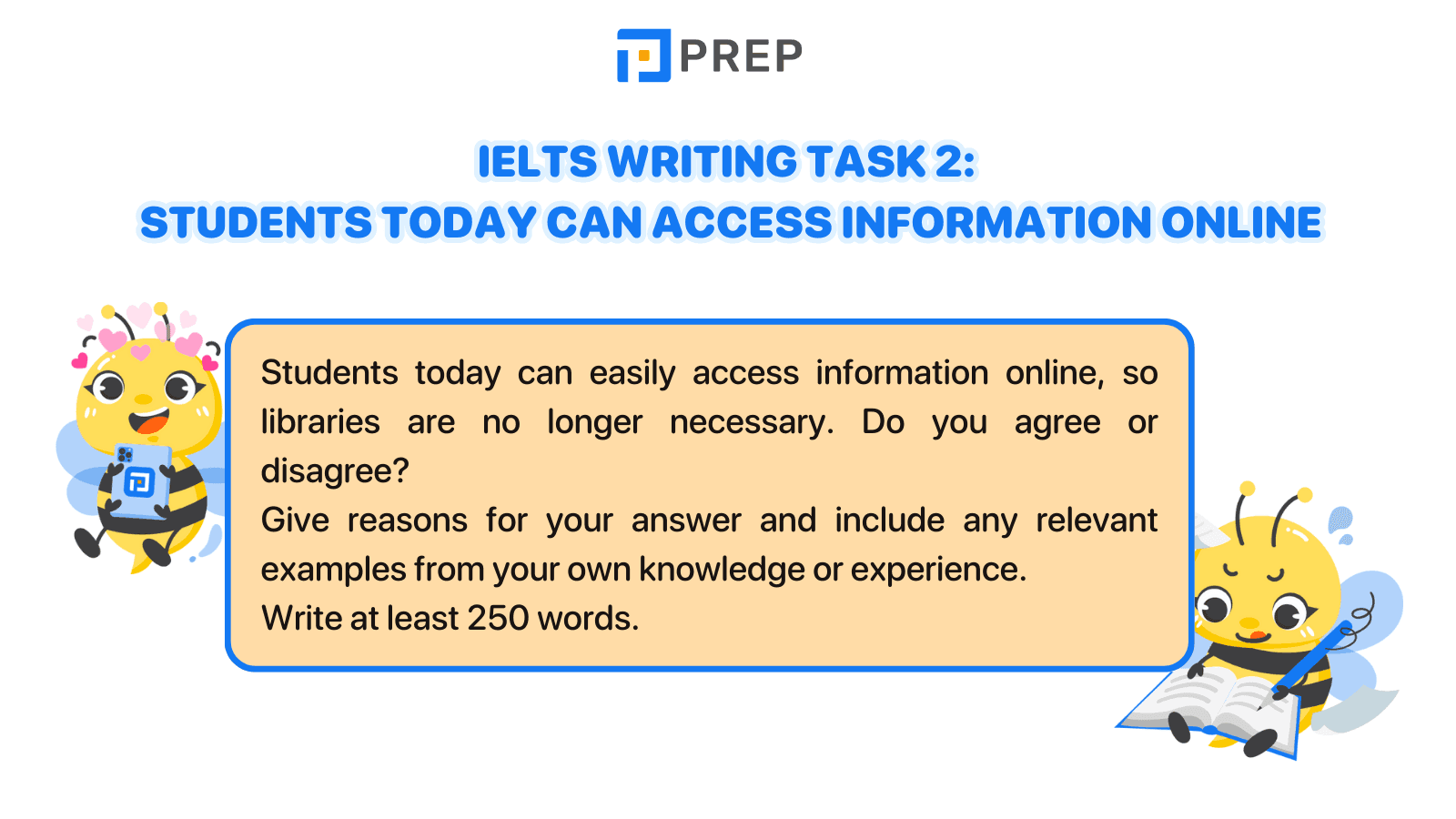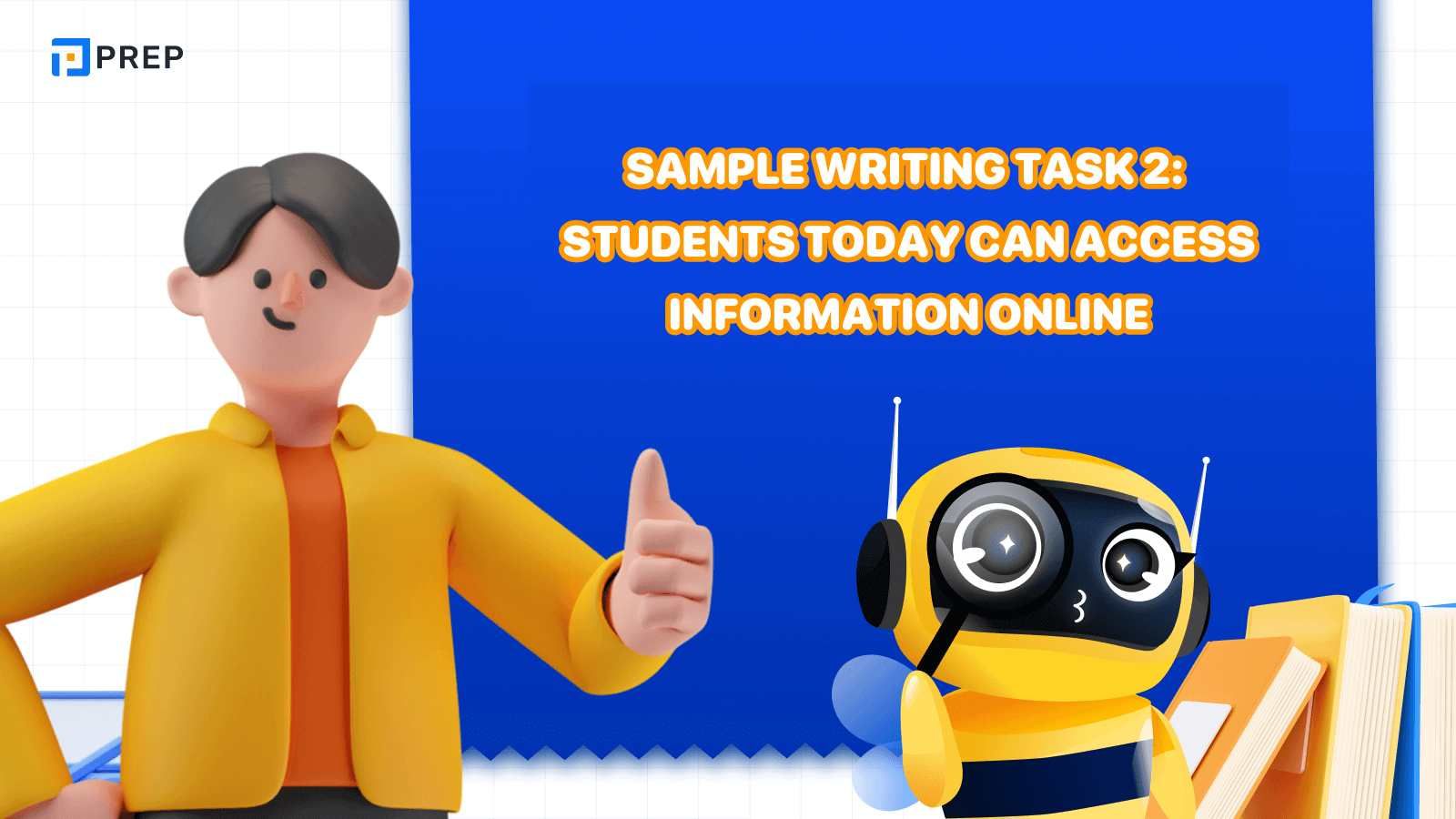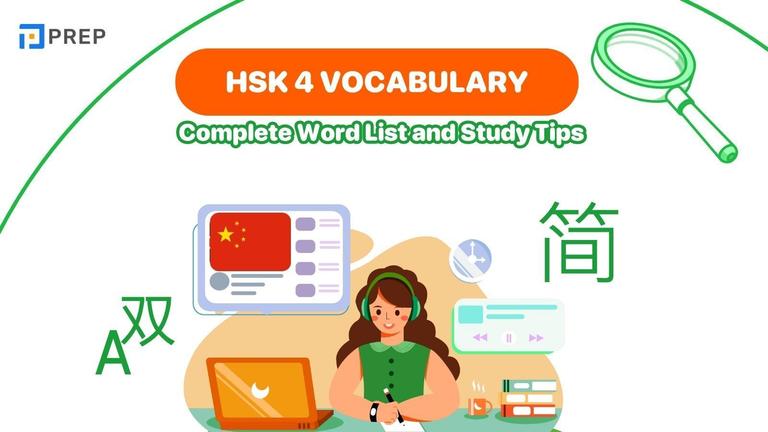Sample IELTS Writing Task 2 Students today can access information online
IELTS Writing Task 2 Students today can access information online is a topic that has appeared in the actual IELTS exam. In today's article, PREP would like to share with you the complete prompt, detailed outline, and a super high-quality band 7.0+ sample essay. Take a look right away!
*This sample was prepared by Mr. Nhat Pham, an IELTS 8.5 Overall achiever (9.0 Listening, 9.0 Reading, 8.0 Writing, 7.5 Speaking) and Marker Leader at PREP.

I. The task and outline for IELTS Writing Task 2 Students today can access information online
Before you reference the sample IELTS Writing Task 2 IELTS Writing Task 2 Students today can access information online, let's go through the prompt and detailed outline with PREP below!
1. Task
You should spend about 40 minutes on this task.
Write about the following topic:
Students today can easily access information online, so libraries are no longer necessary. Do you agree or disagree?
Give reasons for your answer and include any relevant examples from your own knowledge or experience.
Write at least 250 words.

2. Outline for IELTS Writing Task 2
Check out the detailed outline for IELTS Writing Task 2 Students today can access information online below!
|
Introduction |
|
|
Why schools should have a social responsibility to discouraging children from eating junk food |
|
|
Why parents should take responsibility for their children's eating habits |
|
|
Conclusion & Opinion |
|
II. Sample IELTS Writing Task 2 Students today can access information online

After understanding the prompt and detailed outline, check out the sample essay for IELTS Writing Task 2 IELTS Writing Task 2 Students today can access information online with a super high-quality band 7.0+ from PREP below!
Today, the role of libraries has come under scrutiny, leading some observers to claim that they are redundant in society. Even though traditional libraries might appear obsolete, I am inclined to disagree with this opinion.
There are reasons to believe that libraries no longer have their place in the world. Firstly, online resources are ever-expanding, and it is increasingly convenient to access them at the same time. Search engines, academic databases, and digital information archives offer troves of knowledge which can be looked up at will, when registered at an institution. All that is needed is a computer connected to the Internet, which is almost a prerequisite for every university student these days. Technology, moreover, has led to the existence of eBooks and digital newspapers, making it possible to own scholarly texts without having to go to libraries to acquire a hard copy. For that reason, some people argue that these places are inefficient, and should be repurposed as a result.
Libraries continue to be integral in some respects, however. They are not mere repositories of knowledge but also appropriate spaces for studying. The atmosphere at libraries is conducive to students’ concentration, as distraction, such as noise, is optimally controlled. This can also be relevant for facilitating education in groups, since students can exchange ideas with each other while still able to maintain their focus. Group learners, therefore, would end up being enriched both socially and in terms of critical thinking. Furthermore, as opposed to online databases, libraries are operated by librarians, who vet and classify reading materials to ensure that they are reliable. At the same time, these professionals help visitors by guiding them to those reputable sources. This makes the visitors feel welcomed, which is an experience absent from the solitude of online browsing.
In conclusion, while digital technology has introduced faster access to information compared to libraries, I disagree with dismissing their necessity. Despite the threat posed to their existence by the Internet, libraries are likely to remain pivotal in education and scholarly pursuits.
The vocabulary used in the sample essay for IELTS Writing Task 2 IELTS Writing Task 2 Students today can access information online:
-
Come under scrutiny (v.): to be viewed with suspicion
-
Redundant (adj.): unnecessary
-
Obsolete (adj.): outdated
-
Ever-expanding (adj.): continuously growing
-
Archive/repository (n.): storage facility
-
Trove (n.): treasure trove
-
At will (adv.): whenever desired
-
Prerequisite (n.): requirement
-
Scholarly (adj.): academic
-
Repurpose (v.): to convert to a different use
-
Integral/pivotal (adj.): essential
-
Vet sth (v.): to check the quality of something
-
Classify sth (v.): to categorize something
-
Absent (adj.): lacking
-
Reputable (adj.): credible
-
Solitude (n.): loneliness
-
Dismiss sth (v.): to disregard something
Hopefully, after reading this article, you have a detailed understanding of the prompt, outline, and sample IELTS Writing Task 2 IELTS Writing Task 2 Students today can access information online of band 7.0+ quality. Keep following PREP to update lots of quality English knowledge!
PREP is the only platform offering a comprehensive Writing evaluation process powered by AI technology. The system automatically detects and corrects errors in vocabulary and grammar while identifying critical mistakes that could lower your exam score. Using an exclusive scoring system with 4 main criteria and 11 sub-criteria, it helps you pinpoint common errors, analyze them, and provides detailed solutions in an easy-to-follow interface.
In addition to identifying mistakes, the system highlights your strengths in vocabulary, grammar structures, and ideas, helping you enhance these in future exams. It also offers tailored suggestions to address weaker areas, allowing you to improve step by step and effectively boost your band score.
Download the PREP app now to study IELTS at home and experience a high-quality online preparation program designed to help you achieve your target scores.

Hi I'm Chloe, and I am currently serving as an Product Content Administrator at Prep Education. With over five years of experience in independent online IELTS study and exam preparation, I am confident in my ability to support learners in achieving their highest possible scores.
Comment
Premium content
View allPersonalized roadmap
Most read












